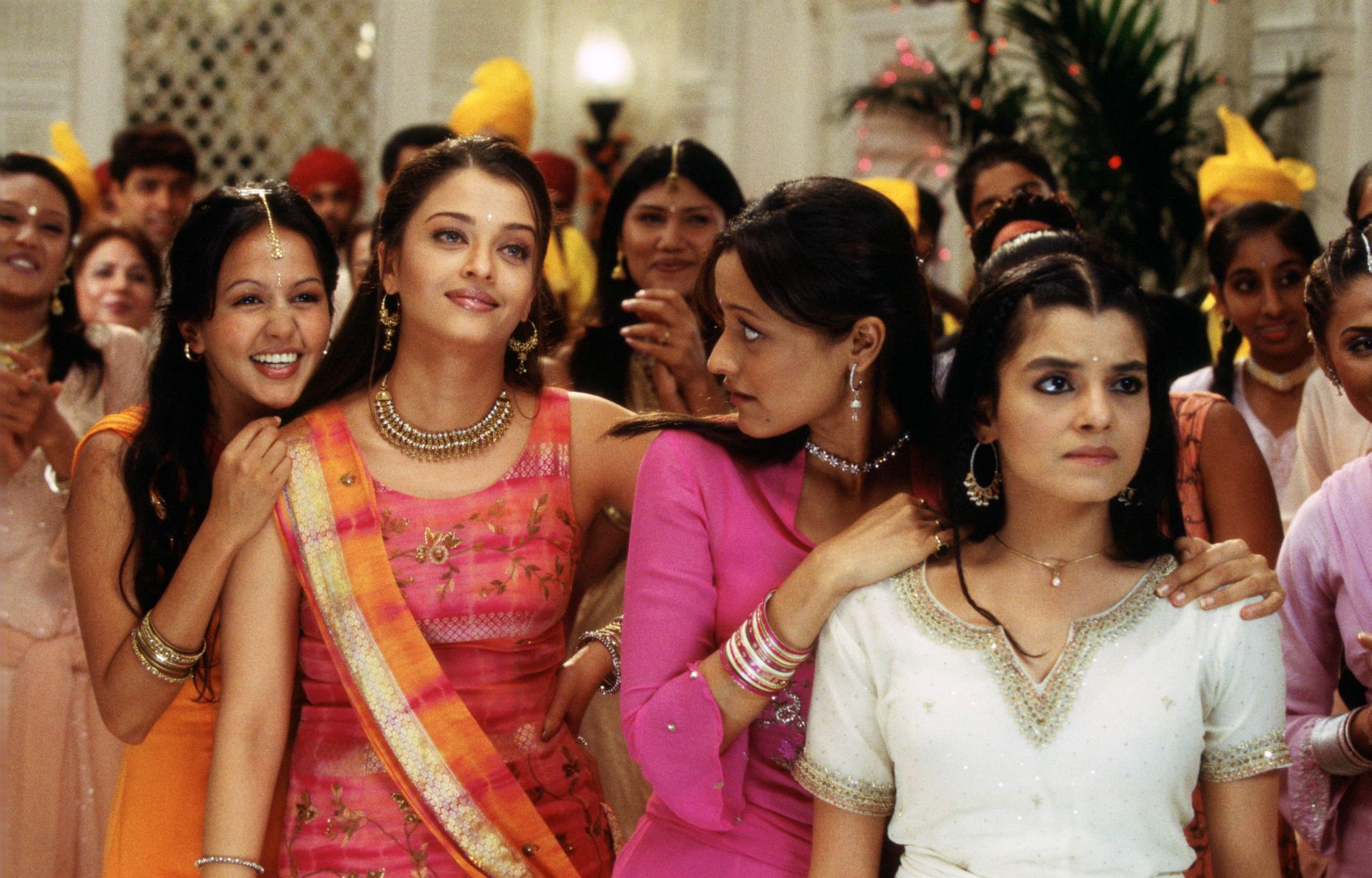Some movies are impossible not to like. Despite your best efforts not to be suckered in, they have some elusive quality – a game cast, eye-catching design, or an indefatigable sense of energy – that win you over.
Bride and Prejudice isn’t one of those movies. But it’s so, so close.
Directed by the popular — and populist — Gurinder Chadha, the first neo-Bollywood director to win a western audience with her breakout success Bend It Like Beckham, it’s an adaptation of a Jane Austen novel (you can probably guess which one from the title). Here, Austen gets the full-blown subcontinental cinema treatment, and it’s a wonder to look at. The film is a visual delight, with a gorgeous cast (led by the former Miss World and Indian megastar Aishwarya Rai, backed up by a handsome if goofily coifed Naveen Andrews basking in his pre-Lost salad days, and with an assist in a thankless role by Kama Sutra’s Indira Varma) and spectacularly colorful dance numbers. Stunning location shots of London, Goa, and Amritsar might play better in a slick travel agency’s promotional video than a feature film, but what they lack in dramatic impact they more than make up for in eye candy.
The story of Bride and Prejudice is so well-established that you’ve seen it a hundred times even if you don’t know Jane Austen from Steve Austin: a young couple from vastly different social backgrounds meets cute; they hate each other on sight (he sees her as an untutored, low-rent hick, she sees him as a snobbish, elitist jerk); and through a series of chance encounters, spiraling flirtations and family dramas, they finally burst into full-blown romance – and, this being a Bollywood-style flick, song. The cast can’t be accused of not giving it their best shot: Rai, as our Amritsar homegirl and heroine, plays it prickly and precious; the appealing Peeya Rai Chowdhary, as her sister Lakhi/Lucky, is sassiness personified; old pro Anupam Kher tackles the role of her dignified father with panache and Nadira Babbar brings a little juice to the limited role of the social-climbing mother; and, if Martin Henderson (The Ring) is a little outclassed as the vacantly handsome male lead, he’s ably assisted by Andrews as his best friend and Nitin Chandra Ganatra as the gross suitor Mr. Kholi in a performance that nearly steals the whole film.
Even the jarring cultural transitions inherent in the film can’t sink it. It doesn’t have the raw enthusiasm of the best Bollywood musicals, but it’s got a sparkling energy all its own that recalls some of the better recent teen romances. And while it’s bizarre at first to hear Bollywood songs with English lyrics (part of the fun, for western ears, is not understanding what’s being sung, so you can pretend the words aren’t completely insipid; Bride and Prejudice, alas, grants you no such luxury), the tunes are good enough and delivered with enough flair that you don’t mind too much. There’s enough authenticity in the costumes, traditions and locations to please fans of Indian cinema, and there’s enough flash, glitz and glamour to make those used to Hollywood product feel at home. (No sex, please, though – one carryover from Bollywood is a chasteness that can stick out like a sore thumb to those used to the easy carnality of American films. The couples share little more than meaningful glances until they marry just before the end credits, and even then, they get juuuust about as far as holding hands.)
Gurinder Chadha is clearly aiming for another crossover success here, and nothing in the film other than American audiences’ stubborn resistance to the foreign can explain why she didn’t get it. It’s at the script level where it all falls apart. Bride and Prejudice lacks all the subtlety and wit of its source material, replacing it with bombast and mischief; and, given its substitution of cultural bias for the class warfare of Austen’s novel, it’s surprisingly lacking in bite. Aside from some he-said-she-said banter in the early goings, the social conflict that might have given the film a bit of heft are explored with all the depth of a puddle. Although the story can’t stay mad at anyone (even Ganatra’s crass, repulsive Mr. Kholi is cut some slack in the end), it doesn’t traffic much in shading of character, which results in some pretty cartoonish portrayals, most especially Marsha Mason as Henderson’s mega-rich harridan of a mother. But why quibble? It seems almost mean-spirited to focus on the flaws of a movie that tries this hard to win over everyone. It’s restlessly, almost gratingly cheery, and delivers everything you want from an exuberant Bollywood dance-alike, and runs zero risk of disappointing anyone who as much as looks at the DVD box art. If you’re looking for tons of energy, a pretty cast, breathtaking locations, and a handful of swell dance numbers, you’ll find them in Bride and Prejudice. That’s all you’ll find, but sometimes, that’s all you need.
